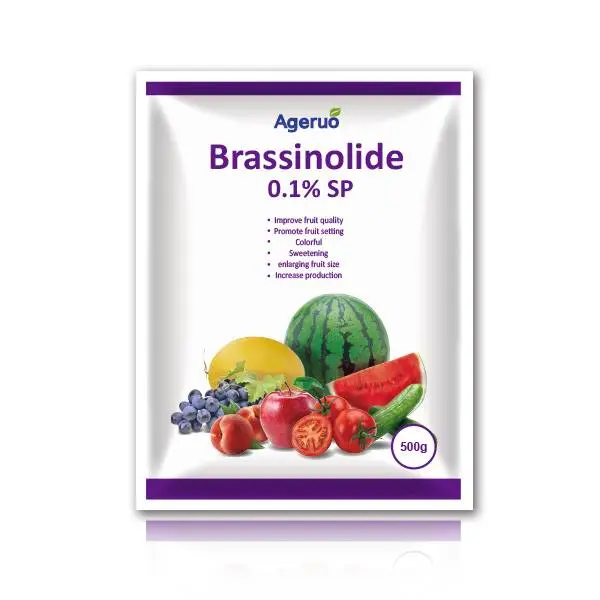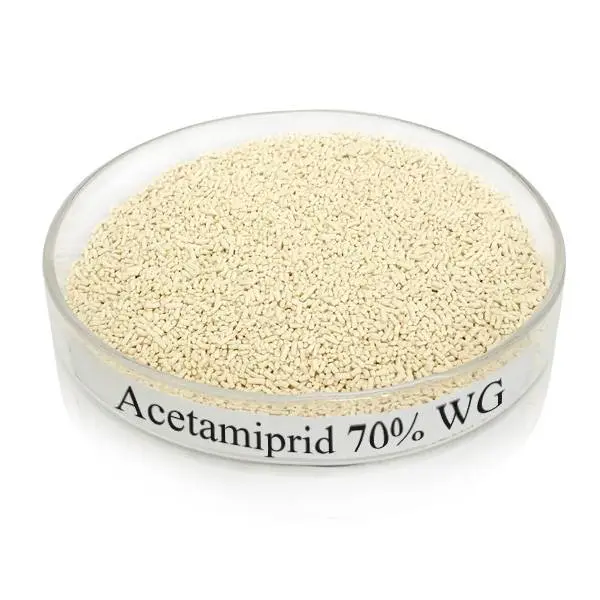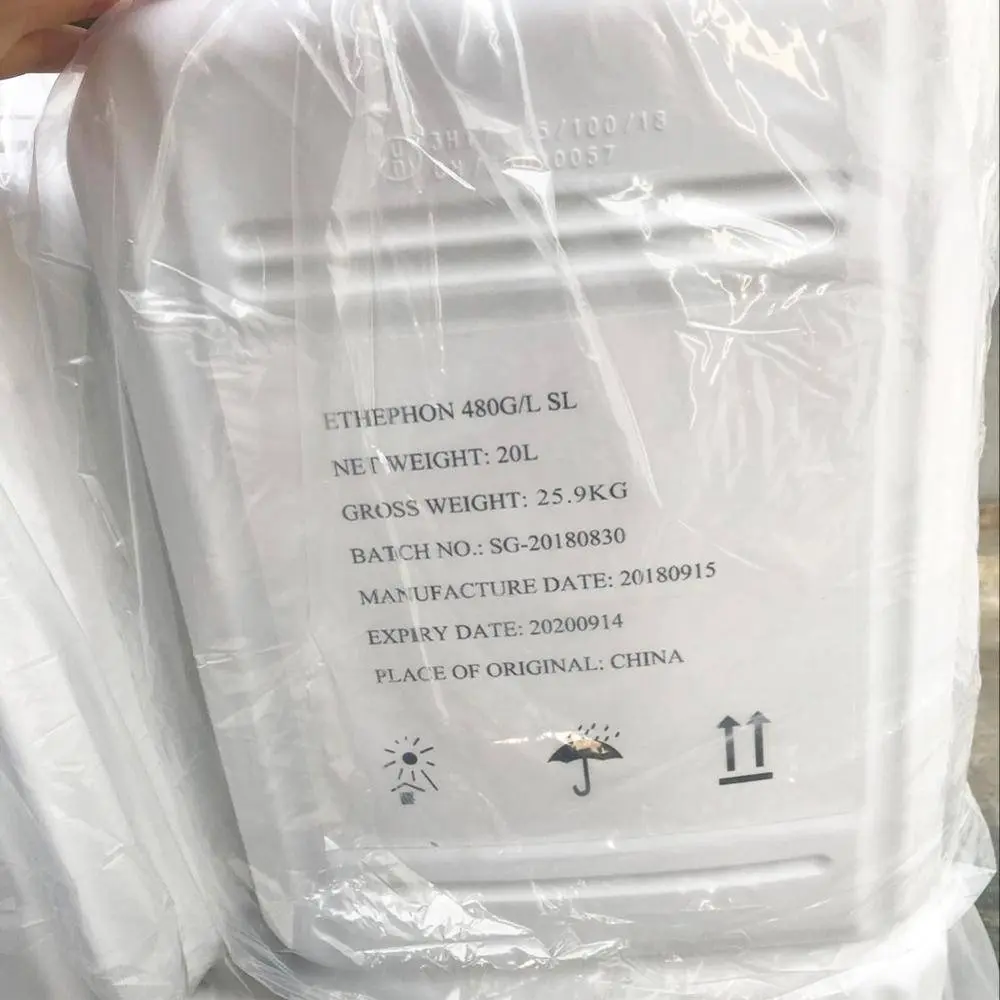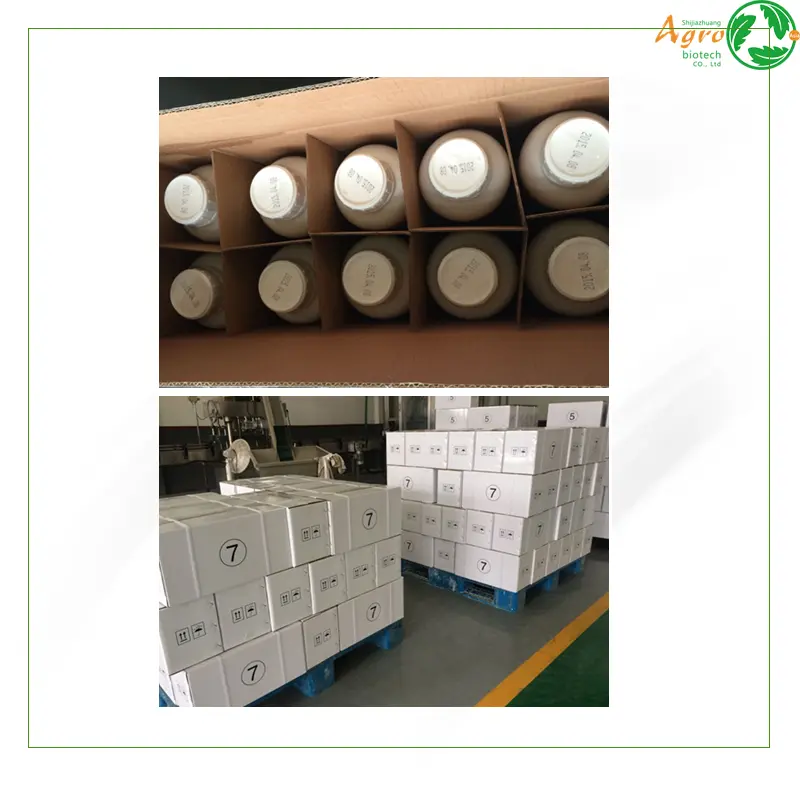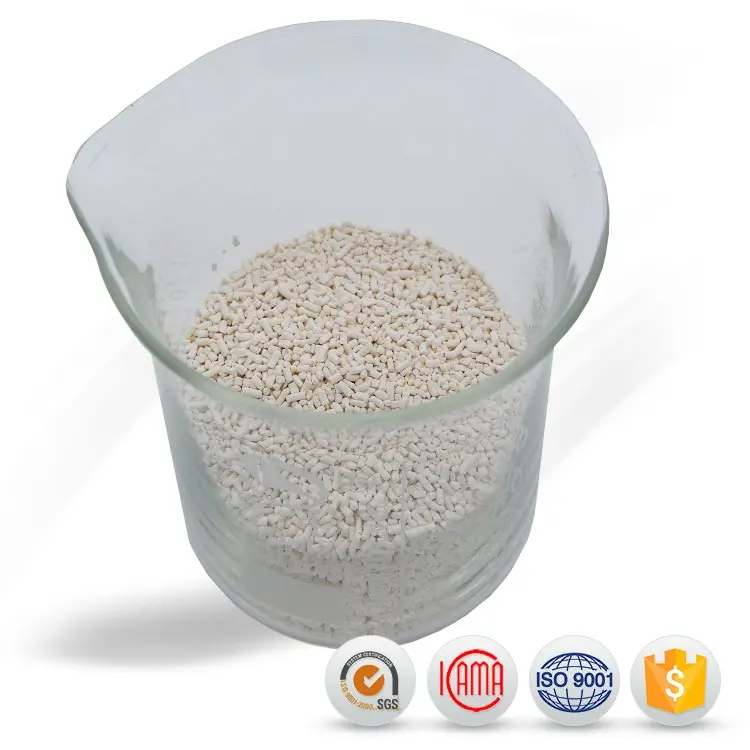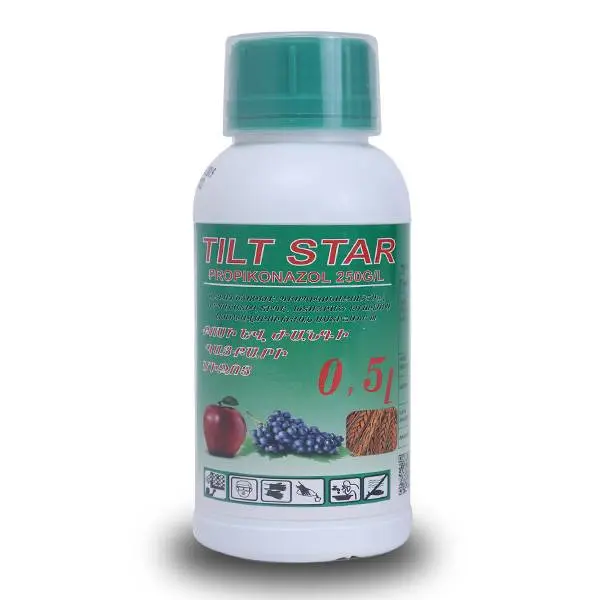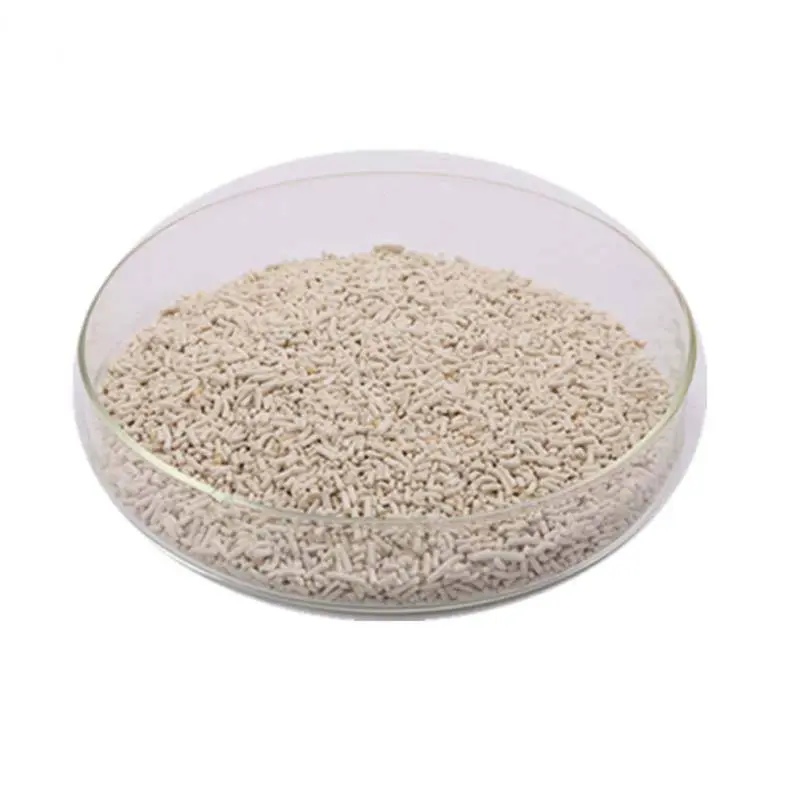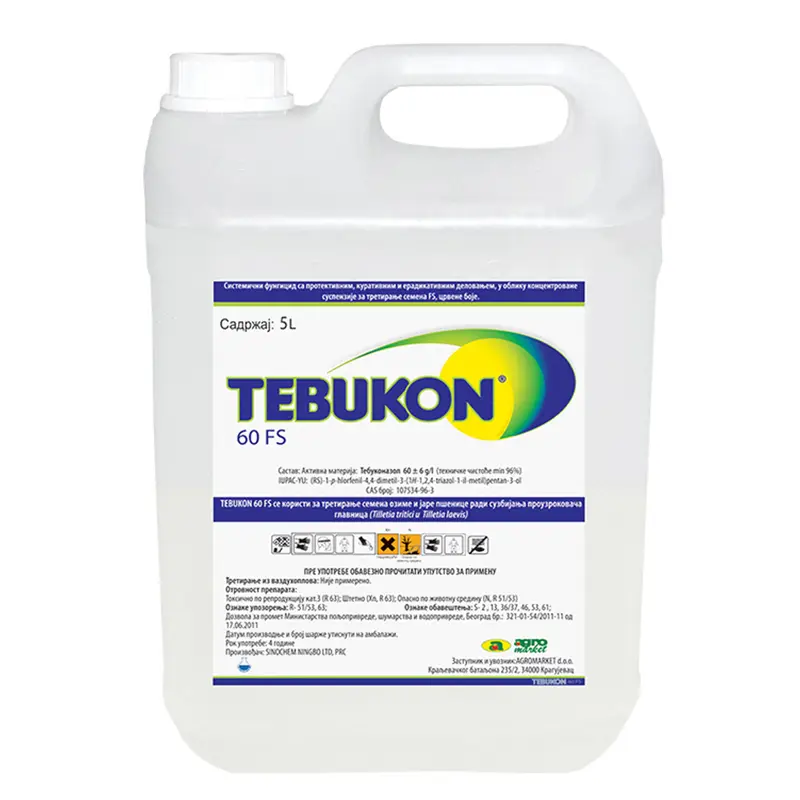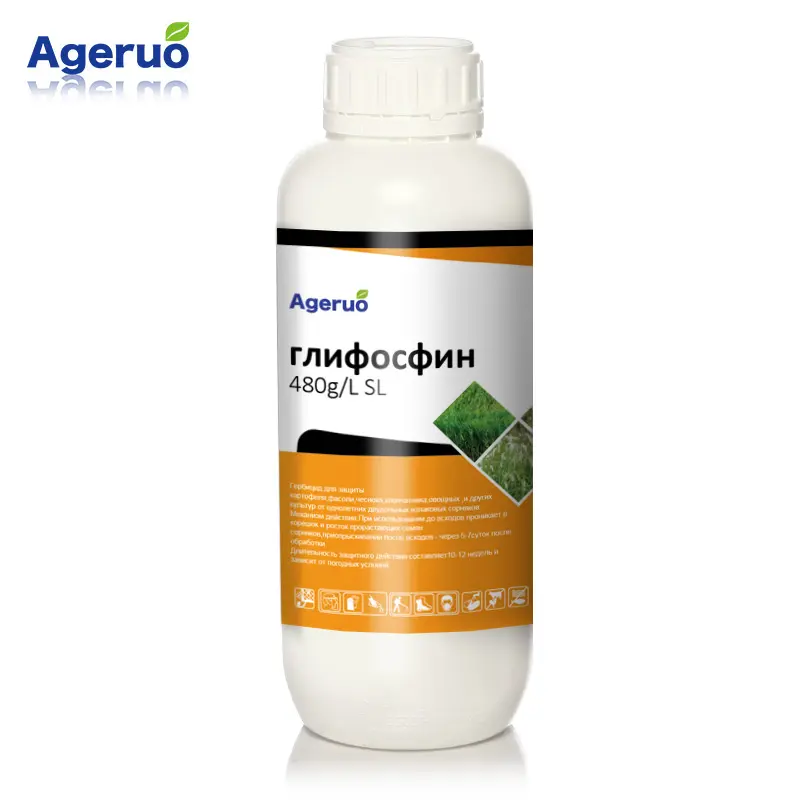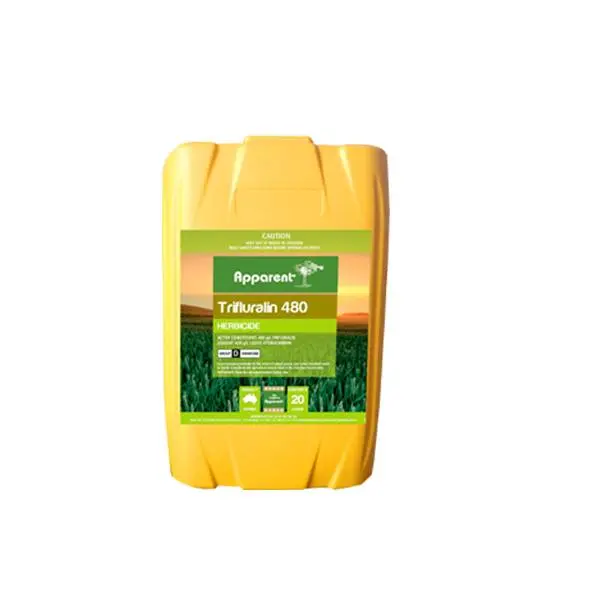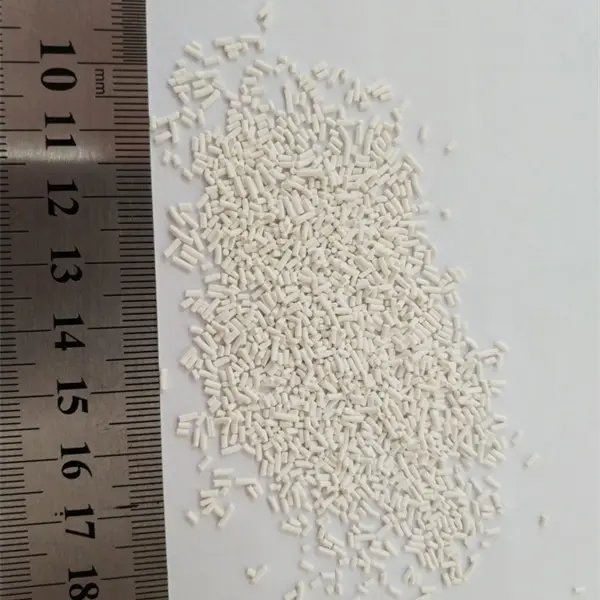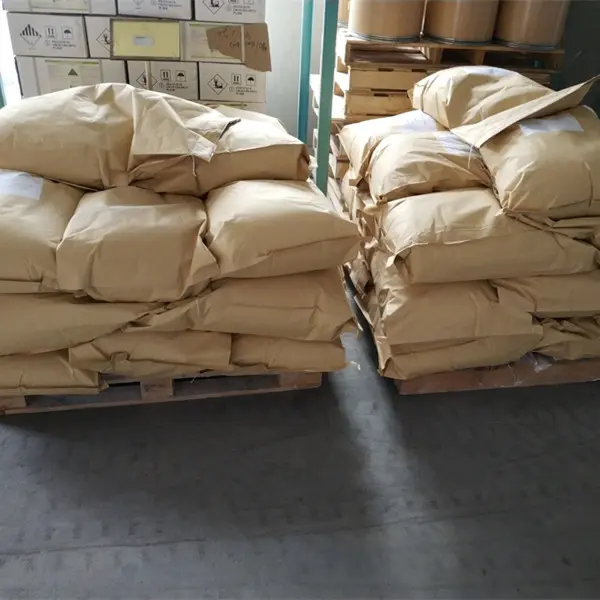- Fungicide
-
Herbicide
- 2,4-D Amine
- Atrazine
- Carfentrazone-ethyl
- Clethodim
- Cyhalofop-butyl
- Diquat
- Diuron
- Glufosinate-ammonium
- Glyphosate
- Haloxyfop-r-methyl
- Linuron
- Metribuzin
- Nicosulfuron
- Oxyfluorfen
- Paraquat
- Pendimethalin
- Penoxsulam
- pinoxaden
- Quinclorac
- Quizalofop-p-ethyl
- Rimsulfuron
- Sodium Nitrophenolate
- Thifensulfuron Methyl
- Tribenuron-methyl
- Trifloxysulfuron
- Trifluralin
-
Insecticide
- Abamectin
- Acetamiprid
- Alpha cypermethrin
- Amitraz
- Bifenazate
- Bifenthrin
- Cartap
- Chlorfenapyr
- Chlorpyrifos
- Cyromazine
- Deltamethrin
- Diflubenzuron
- Dimethoate
- Dinotefuran
- Emamectin benzoate
- Fenthion
- Fipronil
- Flonicamid
- Imidacloprid
- Indoxacarb
- Lambda cyhalothrin
- Lufenuron
- Malathion
- Matrine
- Metaldehyde
- Methomyl
- Profenofos
- Pyridaben
- Spirodiclofen
- Thiamethoxam
- Thiocyclam
- Plant Growth Regulator
- Complex Formula
- Seed-Dressing Agent
- Fertilizer additive
- New Products
Metsulfuron-Methyl 40% WDG 60% WDG
product detail

Active Ingredient and Technical Specification
The active compound in this product is Metsulfuron-Methyl, a sulfonylurea herbicide known for its exceptionally low application rates, high selectivity, and broad-spectrum post-emergence weed control. It acts as an enzyme inhibitor, disrupting cell division in sensitive weed species while remaining safe to wheat under proper use conditions.
Technical Overview:
| Parameter | Details |
|---|---|
| Active Ingredient | Metsulfuron-Methyl |
| CAS Number | 74223-64-6 |
| Chemical Formula | C₁₄H₁₅N₅O₆S |
| Mode of Action | ALS inhibitor (HRAC Group B) – inhibits cell division in broadleaf weeds |
| Formulations Available | 40% WDG, 60% WDG, 60% WP, 20% WP / WDG, 97% TC |
| Combination Products |
|
| Recommended Crops | Wheat (winter and spring); wheat–rice rotations only |
| Target Weeds | Broadleaf weeds: shepherd’s purse, chickweed, Veronica, pigweed, smartweed, wild mustard, etc. |
| Application Stage | Wheat at 3–5 leaf stage; weeds at 2–4 leaf stage |
| Dosage | 5–10 g/ha diluted in 200–300 L water |
| Mode of Absorption | Systemic via leaf and root; translocated to meristems |
| Weed Death Timeline | 3–14 days after application |
| Soil Suitability | Neutral to slightly alkaline; avoid use in acidic or sensitive rotation fields |
| Shelf Life | 2 years under proper storage conditions |
| Packaging Options | 100g, 250g, 500g foil bags; 500g–1kg bottles; 5–25kg drums |
| OEM Services | Private label, artwork, language localization, QR/barcode, retail packaging |
| Registration Support | COA, MSDS, TDS, product photos, labels, WHO/FAO support, dossier formatting |
| Environmental Safety | Avoid use near water bodies; observe crop rotation intervals |
| Export Experience | Exported to Asia, Africa, Middle East, Latin America, Eastern Europe |
Available Combination Formulations:
| Combination Product | Formulation Type |
|---|---|
| Metsulfuron-Methyl 1.75% + Bensulfuron-Methyl 8.25% | WP |
| Tribenuron-Methyl 25% + Metsulfuron-Methyl 25% | WDG |
| Fluroxypyr 13.7% + Metsulfuron-Methyl 0.3% | EC |
| Acetochlor 8.05% + Metsulfuron-Methyl 0.27% + Bensulfuron-Methyl 0.68% | WDG |
| Thifensulfuron-Methyl 68.2% + Metsulfuron-Methyl 6.8% | WDG |
All formulations are produced using advanced granulation and dispersion technologies to ensure:
-
Fast disintegration and high suspension rate in water
-
Uniform particle size for even application
-
Compatibility with standard knapsack or boom sprayers
This product line provides distributors with a wide array of single-active and tank-mix-friendly options for weed management programs across different wheat-producing regions.
Mode of Action and Selective Activity in Wheat Cropping Systems
Metsulfuron-Methyl is a systemic herbicide that belongs to the sulfonylurea class, functioning primarily as an acetolactate synthase (ALS) inhibitor. It halts the production of essential amino acids (valine, leucine, and isoleucine), which are necessary for cell division and plant growth. As a result, treated weeds exhibit stunted growth, chlorosis, and eventual necrosis starting within a few hours of application.
Systemic Action Pathway:
-
Absorbed through both leaves and roots of the target weed
-
Rapidly translocated via xylem and phloem to growing points
-
Accumulates in meristematic tissues (root tips, shoot apex), causing growth inhibition
-
Weed death occurs in 3–14 days, depending on species and environmental conditions
Crop Safety and Selectivity:
Metsulfuron-Methyl exhibits excellent selectivity to wheat and other cereal crops due to:
-
Metabolic degradation within the wheat plant: enzymes in wheat break down the herbicide into non-toxic metabolites
-
Wheat-specific tolerance: the product is specifically formulated for safe use in post-emergence applications during early vegetative stages
However, the herbicide has a long residual life in soil, especially in alkaline conditions. It is not suitable for use in fields intended for sensitive rotational crops such as:
-
Corn
-
Soybean
-
Cotton
-
Cucumber
-
Rape
As such, Metsulfuron-Methyl is best used in neutral to slightly alkaline soils under wheat–rice rotation systems, particularly in regions such as the Yangtze River basin.
This selective mode of action allows for low-dose precision control, reducing environmental load while maintaining weed-free wheat fields.
Related reading: Mode of Action of Metsulfuron Methyl
Related reading: 2, 4-D metsulfuron methyl or glyphosate: What’s the difference?
Related reading: Mixing Dicamba or 2,4-D with Metsulfuron Methyl
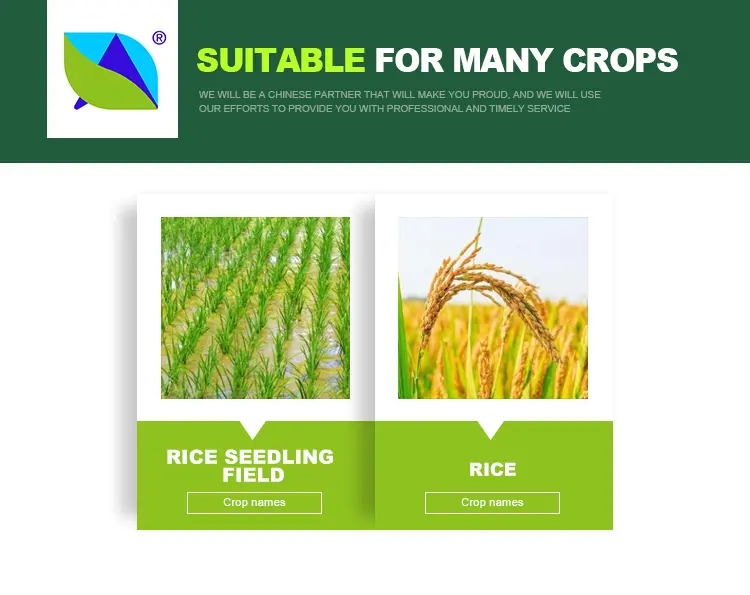
Target Weeds and Recommended Crops
Metsulfuron-Methyl 40% / 60% WDG is designed for post-emergence weed control in wheat fields, with strong efficacy against a wide range of broadleaf weeds and some annual sedges that compete with wheat during early vegetative stages. Its selective systemic action ensures that while weeds are eliminated, wheat seedlings remain unharmed when applied correctly.
Weeds Effectively Controlled:
This product is effective against over 20 common weed species, including:
| Weed Species | Scientific Name | Weed Type |
|---|---|---|
| Shepherd’s purse | Capsella bursa-pastoris | Broadleaf |
| Chickweed | Stellaria media | Broadleaf |
| Veronica | Veronica persica | Broadleaf |
| Pigweed | Chenopodium album | Broadleaf |
| Smartweed | Polygonum hydropiper | Broadleaf |
| Wild mustard | Sinapis arvensis | Broadleaf |
| Dayflower | Commelina communis | Broadleaf |
| Dodder | Cuscuta spp. | Parasitic weed |
| Annual Sophora | Sophora alopecuroides | Leguminous weed |
| Red rice | Oryza sativa f. spontanea | Grass mimic |
| Alligator weed | Alternanthera philoxeroides | Aquatic/creeping |
These weeds are commonly found in winter wheat fields, especially in China, Central Asia, and parts of Eastern Europe. The herbicide provides excellent results when applied during the 2–4 leaf stage of weed growth for optimal control.
Recommended Crop Use:
-
Primary Target Crop: Wheat (winter wheat, spring wheat)
-
Suitable Rotation System: Wheat–rice
-
Soil Compatibility: Neutral to alkaline soil (pH ≤ 7 recommended)
Avoid use in fields where the next crop in rotation includes corn, cotton, soybean, cucumber, or rape unless a long interval (≥120 days) and soil testing confirm no residual risk.
With its broad weed spectrum, Metsulfuron-Methyl provides clean fields during critical wheat development phases, ultimately improving nutrient use efficiency, yield quality, and harvest profitability.
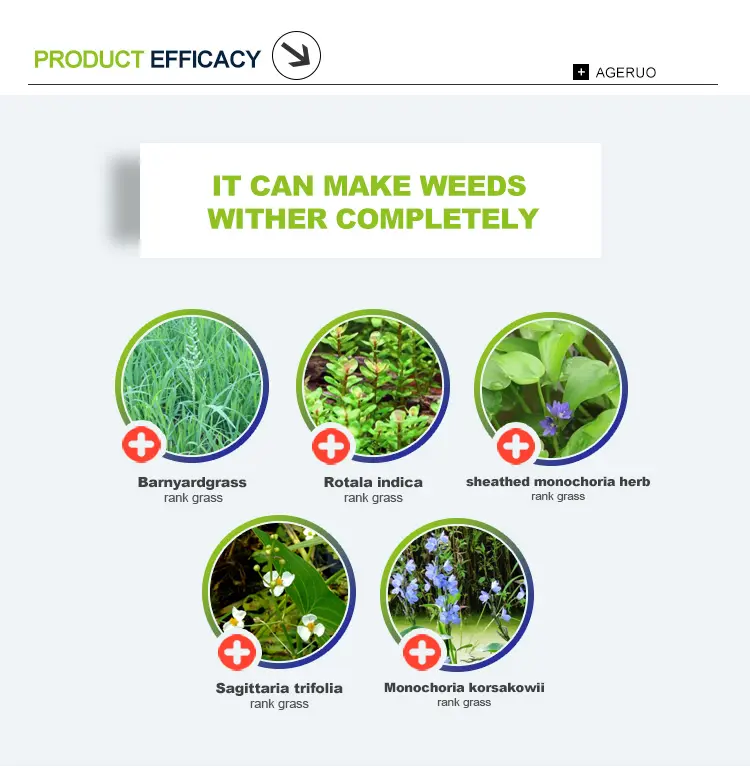
Application Methods and Recommended Dosage
Metsulfuron-Methyl 40% WDG / 60% WDG is applied as a post-emergence foliar spray during the early growth stage of wheat and weeds. Its high activity at low concentrations makes it suitable for low-volume, precision spraying, reducing overall herbicide input while ensuring effective weed control.
Recommended Application Guidelines:
| Target Crop | Application Stage | Weed Stage | Dosage (a.i.) | Application Method |
|---|---|---|---|---|
| Wheat | 3–5 leaf stage (tillering) | 2–4 leaf stage of weeds | 5–10 g/ha | Dilute with 200–300 L water and apply as foliar spray |
Usage Instructions:
-
Ensure even distribution with fine droplet nozzles
-
Spray during calm weather, ideally in the early morning or late afternoon
-
Do not apply if rain is expected within 4–6 hours
-
Use clean water and thoroughly agitate the solution before and during spraying
-
Avoid overlapping spray paths to prevent overdose in localized areas
Important Notes:
-
Metsulfuron-Methyl is highly active—accurate dosing is critical
-
Do not tank mix with acidic pesticides or strong alkaline solutions unless label allows
-
Do not use in fields with sensitive following crops (corn, soybean, rape, cotton, etc.) unless proper rotation intervals are observed
With its low-dose, high-efficiency profile, this herbicide is a powerful option for modern wheat production where precision application and residual control are key to sustainable weed management.
Key Advantages of Metsulfuron-Methyl 40% / 60% WDG
Metsulfuron-Methyl 40% / 60% WDG delivers exceptional weed control performance with one of the lowest application rates among post-emergence herbicides for wheat. It is a smart choice for distributors and growers seeking a cost-effective, efficient, and highly selective solution for managing broadleaf weeds in large-scale wheat cultivation.
1. Ultra-Low Dosage, High Activity
Only 5–10 grams per hectare are needed to control a wide range of problematic weeds, making this product extremely cost-efficient and easy to store and transport.
2. Broad-Spectrum Weed Control
Controls over 20 species of annual and perennial broadleaf weeds, including hard-to-kill species like shepherd’s purse, chickweed, Veronica, and wild mustard.
3. Systemic and Long-Lasting Action
Quick absorption through foliage and roots, followed by systemic transport to meristems, leads to complete growth inhibition and weed death within 3–14 days.
4. Excellent Selectivity in Wheat
The product is rapidly metabolized in wheat plants, ensuring crop safety even at early stages, making it ideal for wheat-dominant cropping systems.
5. Flexible Formulation Options
Available in 40% and 60% WDG, with optional combination products including Tribenuron, Bensulfuron, and Thifensulfuron, allowing for regional and regulatory adaptation.
6. Strong Soil Residual Activity
Provides season-long suppression in neutral to alkaline soils, reducing the need for multiple herbicide applications.
7. Export-Ready with Customization
OEM label service, multilingual packaging, and full registration support are available—ideal for distributors building private brands or entering new wheat production markets.
Metsulfuron-Methyl is a proven herbicide that delivers high efficacy, operational efficiency, and reliable compatibility in modern wheat-based agriculture systems.
Packaging and Customization Services
To meet the varying needs of global distributors, tender bidders, and private label clients, Metsulfuron-Methyl 40% / 60% WDG is available in a range of retail and bulk packaging formats. All packaging is designed for safety, convenience, and compliance with international agrochemical logistics standards.
Available Packaging Options:
| Package Type | Size Options | Usage Scenario |
|---|---|---|
| Aluminum Foil Bag | 100 g, 250 g, 500 g | Retail use, farmer packs |
| Plastic Bottle | 500 g, 1 kg | Field agents, mid-scale farms |
| Fiber Drum / Carton | 5 kg, 10 kg, 25 kg | Distributor bulk purchase |
| Custom Packs | On request | OEM / country-specific format |
All containers are:
-
Sealed, moisture-resistant, and UV-protected
-
Printed with batch number, production date, and expiry
-
Available in white label (neutral) or full custom branding
OEM / Private Label Capabilities:
-
Custom artwork with your logo, brand name, and multi-language content
-
Regulatory symbols, QR codes, and hazard icons compliant with local laws
-
Support for barcode generation, retail box design, and master carton printing
-
Flexible packaging material (aluminum foil, PE bottle, cardboard box, etc.)
Whether you're building a localized herbicide brand or supplying national distributors under contract, we help you create a professional, consistent visual identity with packaging that meets both technical standards and market expectations.
Storage and Safety Guidelines
To maintain product stability and ensure safe application, Metsulfuron-Methyl 40% / 60% WDG must be stored and used under proper conditions. As a highly active herbicide, small handling errors can lead to crop injury or environmental impact if not applied responsibly.
Storage Instructions:
-
Store in a cool, dry, and well-ventilated area
-
Recommended storage temperature: 5°C–35°C
-
Keep in original, sealed containers away from direct sunlight, moisture, and heat sources
-
Do not store near seeds, fertilizers, food, or feed
-
Ensure packaging is clearly labeled and out of reach of children and animals
Safe Handling and Application:
-
Wear protective gloves, long sleeves, goggles, and a respirator when handling or spraying
-
Avoid skin contact, inhalation of dust or spray mist
-
Wash hands and exposed skin thoroughly after use
-
Do not eat, drink, or smoke while handling this product
-
Avoid spraying during windy conditions to reduce drift to sensitive crops
Environmental Precautions:
-
Do not allow runoff into irrigation ditches, ponds, or aquaculture zones
-
Avoid spraying in fields intended for non-tolerant rotational crops within the next 4–6 months
-
Do not rinse application equipment near natural water sources
-
Dispose of packaging and residues in accordance with local hazardous waste regulations
Following these guidelines will ensure not only effective and safe use of the product, but also compliance with agricultural and environmental safety standards in both domestic and export markets.
OEM and Registration Support for Global Markets
At POMAIS, we do more than manufacture Metsulfuron-Methyl herbicides—we act as your strategic partner in brand development, market access, and long-term distribution. Whether you're launching a new agrochemical label or expanding an existing portfolio, we provide comprehensive OEM services and full technical documentation support to simplify your registration and sales process.
OEM & Private Label Services:
-
Full customization of product label, artwork, and packaging
-
Tailored product names and local language adaptation
-
Custom packaging formats to fit retail, wholesale, or government tenders
-
Batch printing, anti-counterfeit QR codes, and logo integration
Registration Document Package:
We provide complete documentation to support import approval and pesticide registration in your country:
-
COA (Certificate of Analysis)
-
MSDS (Material Safety Data Sheet)
-
TDS (Technical Data Sheet)
-
Sample labels, outer box designs, and product photos
-
WHO/FAO spec alignment and active content verification
-
Dossier formatting assistance per your local regulatory authority's template
Export Experience:
With exports to over 50 countries in Asia, Africa, Eastern Europe, Latin America, and the Middle East, we are familiar with:
-
Market-specific registration challenges
-
Packaging compliance laws (e.g., GHS icons, language standards)
-
Tender document formats for institutional supply
By choosing POMAIS as your OEM partner, you gain access to a flexible production system, reliable regulatory support, and a team that understands both technical formulation and commercial rollout—giving your product the advantage it needs in competitive markets.
Frequently Asked Questions – Metsulfuron-Methyl 40% / 60% WDG
Q1: What types of weeds does Metsulfuron-Methyl control?
This herbicide is effective against a wide range of broadleaf weeds and some sedges commonly found in wheat fields, such as shepherd’s purse, chickweed, pigweed, and Veronica.
Q2: Can I use this product on crops other than wheat?
No. Metsulfuron-Methyl is selective to wheat but may cause phytotoxicity in crops like corn, soybean, rape, cotton, and cucumber. It should only be used in wheat or wheat–rice rotation systems.
Q3: What is the recommended application rate?
Apply 5–10 grams per hectare as a foliar spray, ideally during the 2–4 leaf stage of weeds. Use 200–300 liters of water per hectare for proper coverage.
Q4: Can I customize the label and packaging for my brand?
Yes. We offer OEM services, including label design, logo integration, language adaptation, and packaging customization for retail or institutional formats.
Q5: Do you provide registration support for new markets?
Absolutely. We supply COA, MSDS, TDS, sample labels, and help with dossier formatting according to your local pesticide authority’s requirements.
Q6: What is the shelf life of the product?
The shelf life is 2 years when stored in original packaging under cool, dry conditions away from direct sunlight and moisture.
Q7: Is this product suitable for alkaline soils?
Yes, but caution is needed. In alkaline soils, the product degrades more slowly, which may increase the risk of residual effect on subsequent crops. Follow proper rotation intervals.

 POMAIS
POMAIS